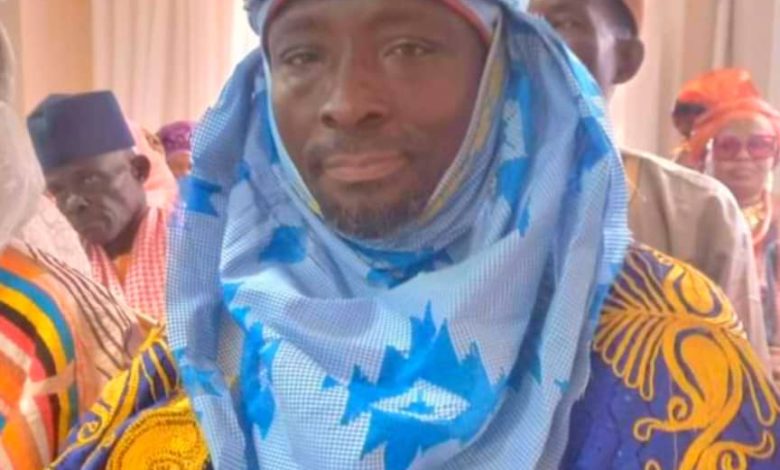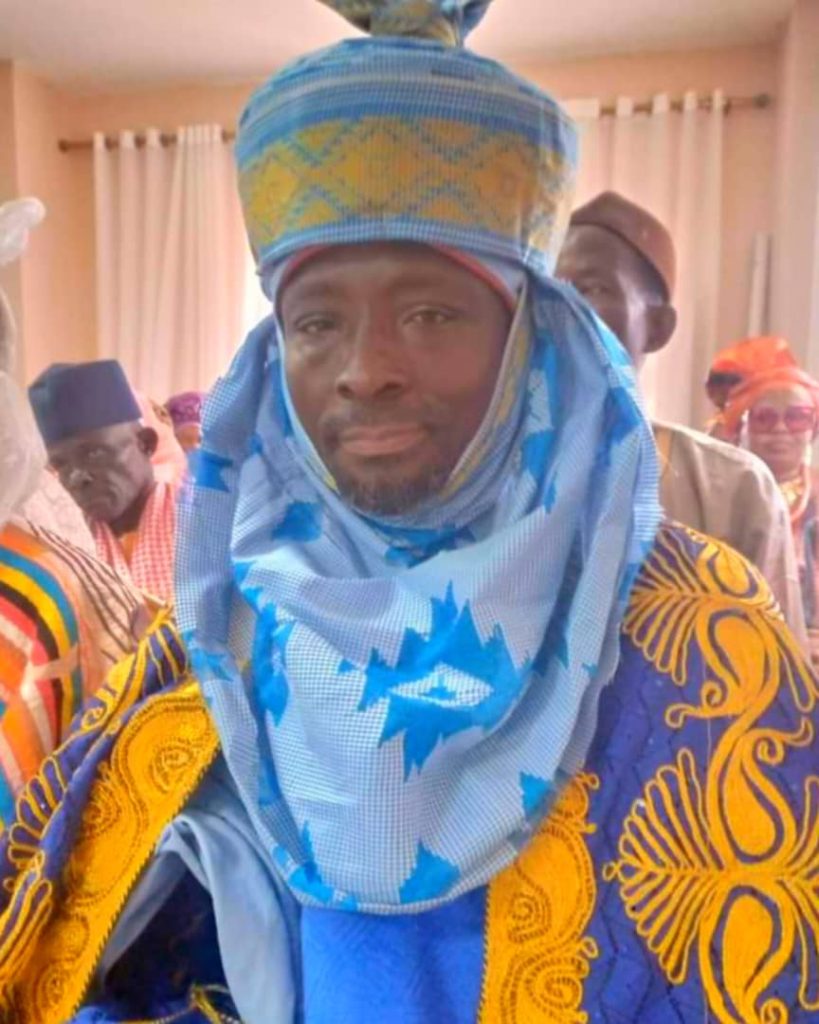
In Ghana, the Sarkin (chief) of the Hausa and Fulani community of Alajo and Kotobabi in Accra, Sarkin Sidi Basiru Ali Ahmed has recently been losing sleep over the menace of drugs in his neck of the woods.
He claims, this is due to the alarming surge in the use of illicit prescription opioids among the youth demographic in Alajo and Kotobabi (suburbs with concentrated poverty) in Accra, the capital city of Ghana.
Representing a commonality shared by most Zongo (Muslim populated) communities in Ghana- it’s not surprising that drug abuse is prevalent and escalating in the environs of Alajo and Kotobabi. Not to mention, the more agonizing reality of widespread drug abuse, life- threatening addiction and overdose -related fatalities among the the youth.
Admittedly, I was struck by a “Say no to Drugs” post recently on Sarkin Sidi Ali’s Facebook feed. And he came across as a progressive chief- for engaging social media to counter the menace of drugs in his community. No doubt, in recent times social media offers an unparalleled opportunity to engage with the youth.
When I finally broached a chat on the menace of drugs in his community, Sarkin Sidi Ali notes: “In Zongo (deprived Muslim) communities like Alajo and Kotobabi and its environs, the drug problem is real. The consumption of drugs is destroying the youth so I have to do something, I just can’t look on, we have to use every means possible, even social media, Facebook and Ticktock to educate the youth about the consequences of using drugs.”
Definitely, drug abuse cannot be entirely without any tangible cause. Does this suggest anything to you? He adds: “You are right. We have a lot of drugs peddlers, smokers (young and old) and bad people who have negative influence on the youth. We have socio- economic challenges…there are no jobs for young people, meaning there’s poverty here in Alajo and Kotobabi and its surrounding areas. The problems are many, I can’t mention all, but everyone knows the situation in the Zongos.”
Like any other local community in Ghana, Alajo and Kotobabi and its surrounding areas need a systemic change. “Yes, we need to educate school children about drugs right from the begining and also work on their moral upbringing. I need parents, Islamic scholars and opinion leaders to join me in the campaign to discourage the youth from using drugs especially.” He explained.
The internet (social media) has the potential to expose young people in our local communities to a lot of negativity, in equal measure social media can be embraced in the bid to counter negative narratives and also used to inspire greater awareness against the dangers of drugs use.
”You have said it all. I urge all Zongo chiefs across the country to join my social media campaign to help address this social evil called drug abuse. Besides parents must set good examples for their children to emulate. I also commend the cabinet of Hausa chiefs of Accra New Town for joining the “Say No to Drugs” campaign. Together we can make a difference.” Sarkin, Sidi Ali further called on non-governmental organisations to support his campaign to address the use of drugs in the environs of Alajo and Kotobabi.
Reports indicate that, drug abuse is prevalent and increasing in Zongo communities such as: Accra New Town, Nima, Maamobi, Fadama, Madina and Ashaiman to name just a few. In these poor neighbourhoods the young and the elderly engage in the use of drugs.

Some of the commonly abused drugs in these communities are: cocaine, heroin and marijuana. But recently, there’s also an increasing addiction to prescription opioids: Codeine, Benylin, Tapentadol, Carisoprodol and Tramadol and several others among the youth. This is blamed on the infiltration of illicit prescription opioids into Ghana which is currently a growing concern due to the addiction and overdose fatalities among the youth.
For instance, “Wonim Red” street name for an illicit drug, which is a combination of (Tapentadol and Carisoprodol) is available on the black market in Ghana, Nigeria and Cote D’IVoire. Consumption of the highly addictive illicit drug, “Wonim Red” has dire health hazards and negative implications on social wellness.
We cannot allow this to continue. Let’s help the youth forge a path away from this harmful course.
Article was first published in the Congress of African Journalists (CAJ) International Magazine
PHOTO: Sarkin Sidi Basiru Ali Ahmed
In Ghana, the Sarkin (chief) of the Hausa and Fulani community of Alajo and Kotobabi in Accra, Sarkin Sidi Basiru Ali Ahmed has recently been losing sleep over the menace of drugs in his neck of the woods.
He claims, this is due to the alarming surge in the use of illicit prescription opioids among the youth demographic in Alajo and Kotobabi (suburbs with concentrated poverty) in Accra, the capital city of Ghana.
Representing a commonality shared by most Zongo (Muslim populated) communities in Ghana- it’s not surprising that drug abuse is prevalent and escalating in the environs of Alajo and Kotobabi. Not to mention, the more agonizing reality of widespread drug abuse, life- threatening addiction and overdose -related fatalities among the the youth.
Admittedly, I was struck by a “Say no to Drugs” post recently on Sarkin Sidi Ali’s Facebook feed. And he came across as a progressive chief- for engaging social media to counter the menace of drugs in his community. No doubt, in recent times social media offers an unparalleled opportunity to engage with the youth.
When I finally broached a chat on the menace of drugs in his community, Sarkin Sidi Ali notes: “In Zongo (deprived Muslim) communities like Alajo and Kotobabi and its environs, the drug problem is real. The consumption of drugs is destroying the youth so I have to do something, I just can’t look on, we have to use every means possible, even social media, Facebook and Ticktock to educate the youth about the consequences of using drugs.”
Definitely, drug abuse cannot be entirely without any tangible cause. Does this suggest anything to you? He adds: “You are right. We have a lot of drugs peddlers, smokers (young and old) and bad people who have negative influence on the youth. We have socio- economic challenges…there are no jobs for young people, meaning there’s poverty here in Alajo and Kotobabi and its surrounding areas. The problems are many, I can’t mention all, but everyone knows the situation in the Zongos.”
Like any other local community in Ghana, Alajo and Kotobabi and its surrounding areas need a systemic change. “Yes, we need to educate school children about drugs right from the begining and also work on their moral upbringing. I need parents, Islamic scholars and opinion leaders to join me in the campaign to discourage the youth from using drugs especially.” He explained.
The internet (social media) has the potential to expose young people in our local communities to a lot of negativity, in equal measure social media can be embraced in the bid to counter negative narratives and also used to inspire greater awareness against the dangers of drugs use.
”You have said it all. I urge all Zongo chiefs across the country to join my social media campaign to help address this social evil called drug abuse. Besides parents must set good examples for their children to emulate. I also commend the cabinet of Hausa chiefs of Accra New Town for joining the “Say No to Drugs” campaign. Together we can make a difference.” Sarkin, Sidi Ali further called on non-governmental organisations to support his campaign to address the use of drugs in the environs of Alajo and Kotobabi.
Reports indicate that, drug abuse is prevalent and increasing in Zongo communities such as: Accra New Town, Nima, Maamobi, Fadama, Madina and Ashaiman to name just a few. In these poor neighbourhoods the young and the elderly engage in the use of drugs.
Some of the commonly abused drugs in these communities are: cocaine, heroin and marijuana. But recently, there’s also an increasing addiction to prescription opioids: Codeine, Benylin, Tapentadol, Carisoprodol and Tramadol and several others among the youth. This is blamed on the infiltration of illicit prescription opioids into Ghana which is currently a growing concern due to the addiction and overdose fatalities among the youth.
For instance, “Wonim Red” street name for an illicit drug, which is a combination of (Tapentadol and Carisoprodol) is available on the black market in Ghana, Nigeria and Cote D’IVoire. Consumption of the highly addictive illicit drug, “Wonim Red” has dire health hazards and negative implications on social wellness.
We cannot allow this to continue. Let’s help the youth forge a path away from this harmful course.
Article was first published in the Congress of African Journalists (CAJ) International Magazine
PHOTO: Sarkin Sidi Basiru Ali Ahmed




